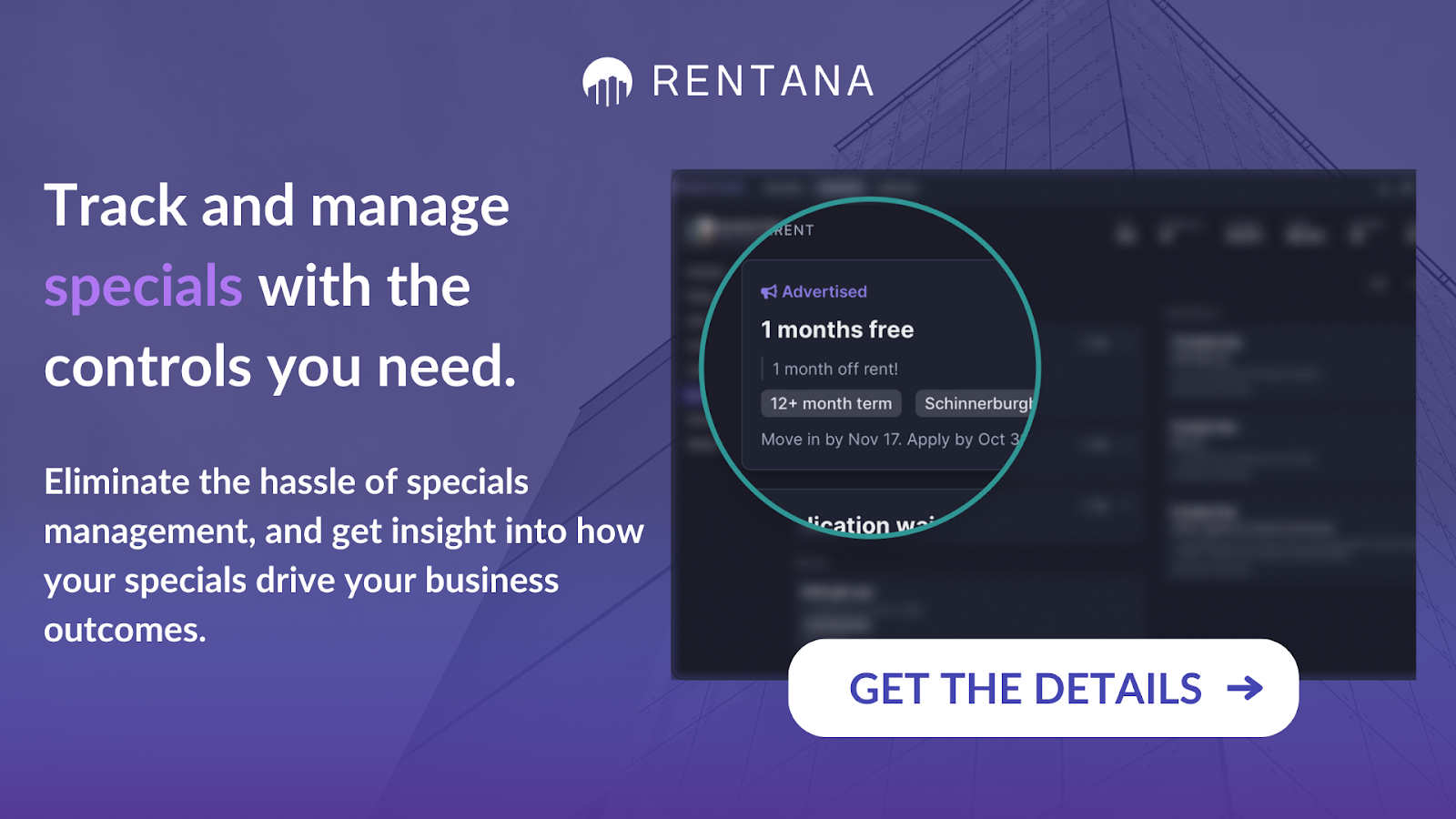




Less is more.
Today, multifamily owners and operators are increasingly turning to advanced solutions to navigate the complexities of the property market, striving for optimal performance and revenue generation.
In this article, we’ll unpack the growing potential of revenue intelligence and how it can help multifamily owners and operators streamline their operations and achieve unparalleled success in the competitive landscape of the property management industry.

At its core, revenue intelligence is a sophisticated approach that integrates data analytics, artificial intelligence (AI), and public market insights to empower property managers and owners with strategies to generate revenue. This dynamic methodology goes beyond traditional property management by leveraging real-time data, predictive analytics, and machine learning algorithms to forecast demand, set optimal rent prices, and manage lease renewals proactively.
Incorporating revenue intelligence into multifamily housing operations enables precision in pricing strategies, reshapes lease management by predicting lease expiration trends, and automates routine tasks such as reporting and data analysis.
In essence, revenue intelligence redefines the traditional approach to revenue management. Revenue intelligence supports informed decision-making by providing multifamily owners and operators with deep operational insights and predictive analytics.
One key component of generating revenue is the ability to price each unit optimally. Rentana's advanced algorithms analyze vast amounts of data, including public market trends and demand fluctuations, to recommend optimal pricing for every unit. This ensures that owners and operators are never leaving money on the table by underpricing or risking vacancies by overpricing.
Property managers can strategically schedule lease renewals and vacancies to align with public market demand peaks, supporting occupancy rates and rental yields. This forward-looking approach to lease management represents a significant departure from the reactive methods that have dominated the industry for years.
Operational insight is another pivotal area where Rentana helps multifamily housing stakeholders. Its platform provides real-time analytics and performance metrics, allowing for a deep dive into the operational aspects of property management. These insights empower decision-makers to identify trends, anticipate market changes, and make informed choices to enhance profitability.
Adapting to innovative operational approaches, especially those driven by technology, can often encounter resistance from within. This resistance largely stems from apprehension about the learning curve, potential disruptions to existing processes, and the perceived risks of implementing new systems.
To successfully navigate these challenges, multifamily owners and operators need a strategic approach that mitigates fears and underscores the tangible benefits that modern solutions, like revenue intelligence platforms, bring to the table:

Integrating technology, particularly through AI-powered platforms like Rentana, plays a critical role in overseeing the day-to-day operations but has evolved to require a sophisticated understanding of market dynamics, renter behavior, and revenue optimization strategies.
With AI, property managers can predict the optimal rent for each unit with greater accuracy, taking into account factors such as public market trends, seasonality, and unit specifications. This level of pricing analysis is instrumental in capturing optimized revenue while maintaining competitive lease terms for tenants.
Furthermore, the platform’s capability to manage and upgrade lease expirations systematically reduces vacancy rates and enhances tenant retention. This proactive approach to lease management allows for better financial forecasting and operational planning. Additionally, access to real-time data and insights enables swift, informed decisions across teams, ensuring all members are aligned with the property’s revenue and operational goals.
One of the foremost challenges is the technical integration of revenue intelligence platforms with existing property management systems. Ensuring compatibility and seamless communication between these systems can require extensive IT support and adjustments. This integration process can become a significant hurdle for businesses without a robust IT department.
The efficacy of a revenue intelligence system heavily relies on the accuracy, quality, and consistency of data fed into it. Incorrect or inconsistent data entry can lead to skewed analytics, affecting rent pricing strategies and operational insights. Establishing strict data management protocols is crucial to overcoming this challenge.
Even with the most advanced and user-friendly revenue intelligence solutions like Rentana, user adoption can pose a challenge. Resistance to change and a lack of training can hinder the full utilization of these powerful tools. Proactive training programs and demonstrating the platform's tangible benefits can encourage more enthusiastic adoption among staff.
The initial setup and ongoing operation of a revenue intelligence system can involve significant financial investment. While increased efficiency and revenue gains often offset these costs, convincing stakeholders of the long-term financial benefits requires a clear demonstration of ROI.
The core of Rentana's value proposition lies in our ability to provide actionable insights, help you set rent pricing, and streamline lease renewals while offering an intuitive user interface. We also encourage collaboration and simplify the complexities of efficient property management, enabling stakeholders to focus on what matters most: promoting profitability and achieving operational excellence.
Read also:
Revenue intelligence refers to the strategic use of data analytics and artificial intelligence to optimize rent pricing, forecast market trends, manage lease renewals, and ultimately optimize for revenue potential for multifamily housing properties. This involves analyzing vast amounts of data to make informed decisions that align with business goals.
Operational efficiency in multifamily housing directly correlates with profitability by reducing wasteful expenditures, optimizing resource allocation, and enhancing the overall performance of property management tasks. Efficient property management ensures that operations are streamlined, costs are minimized, and revenue opportunities are generated, leading to improved financial outcomes for owners and operators.
Yes, revenue intelligence systems utilize advanced algorithms and machine learning techniques to analyze market data and predict trends affecting rental properties. By identifying patterns in rental demand, pricing strategies, and occupancy rates, these systems can provide actionable insights for property managers to stay ahead of market shifts and optimize their rental approach accordingly.
Property management software, revenue management systems, performance analytics platforms, and customer relationship management (CRM) systems are tools used to measure operational efficiency in multifamily housing. These tools help automate routine tasks, manage relationships with tenants, and provide real-time insights into operational performance.
Revenue intelligence helps set rental prices by analyzing factors such as market demand, competitor pricing, historical data, and tenant behaviors. This comprehensive analysis enables property managers to set optimal prices that support occupancy and revenues while ensuring reasonable pricing in the market.
Operational efficiency positively affects tenant satisfaction by streamlining property management processes, ensuring timely maintenance and services, and offering responsive communication and support. Efficiently managed properties will likely provide a better living experience, leading to increased tenant retention, positive reviews, and a strong reputation in the housing market.
Revenue intelligence platforms like Rentana are designed to integrate seamlessly with existing property management software systems. They often include APIs (Application Programming Interfaces) and customizable integration capabilities, allowing data synchronization across systems. This ensures property managers can leverage revenue intelligence insights without disrupting their operations.
Key performance indicators (KPIs) for operational efficiency in multifamily housing include occupancy rates, turnover rates, average rent per unit, maintenance costs, operating expenses ratio, and tenant satisfaction scores. Tracking these KPIs helps property managers assess their operations' effectiveness and identify areas for improvement to enhance profitability and tenant retention.